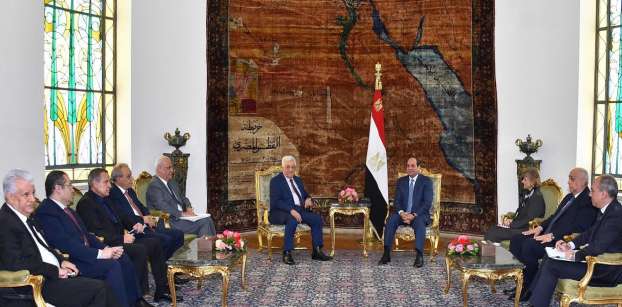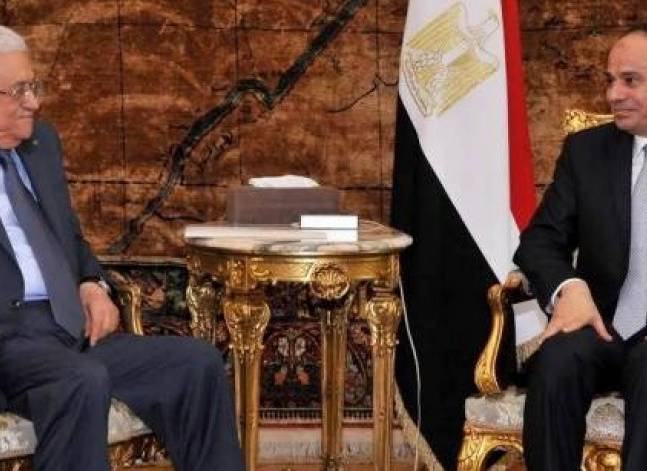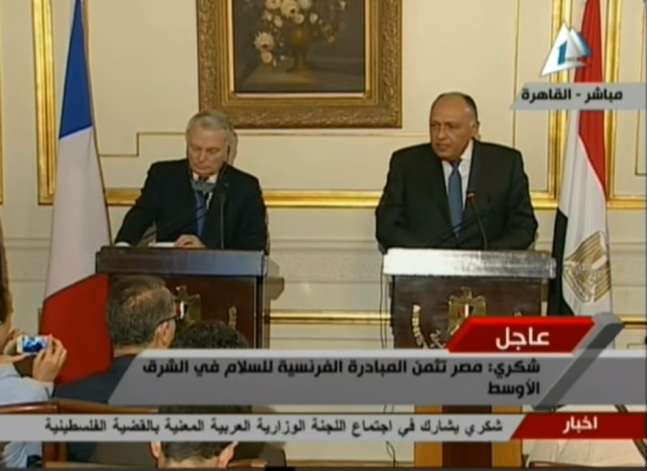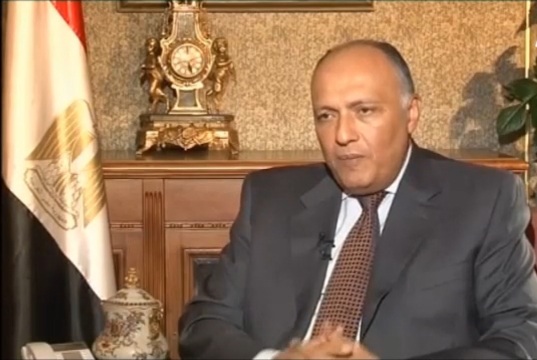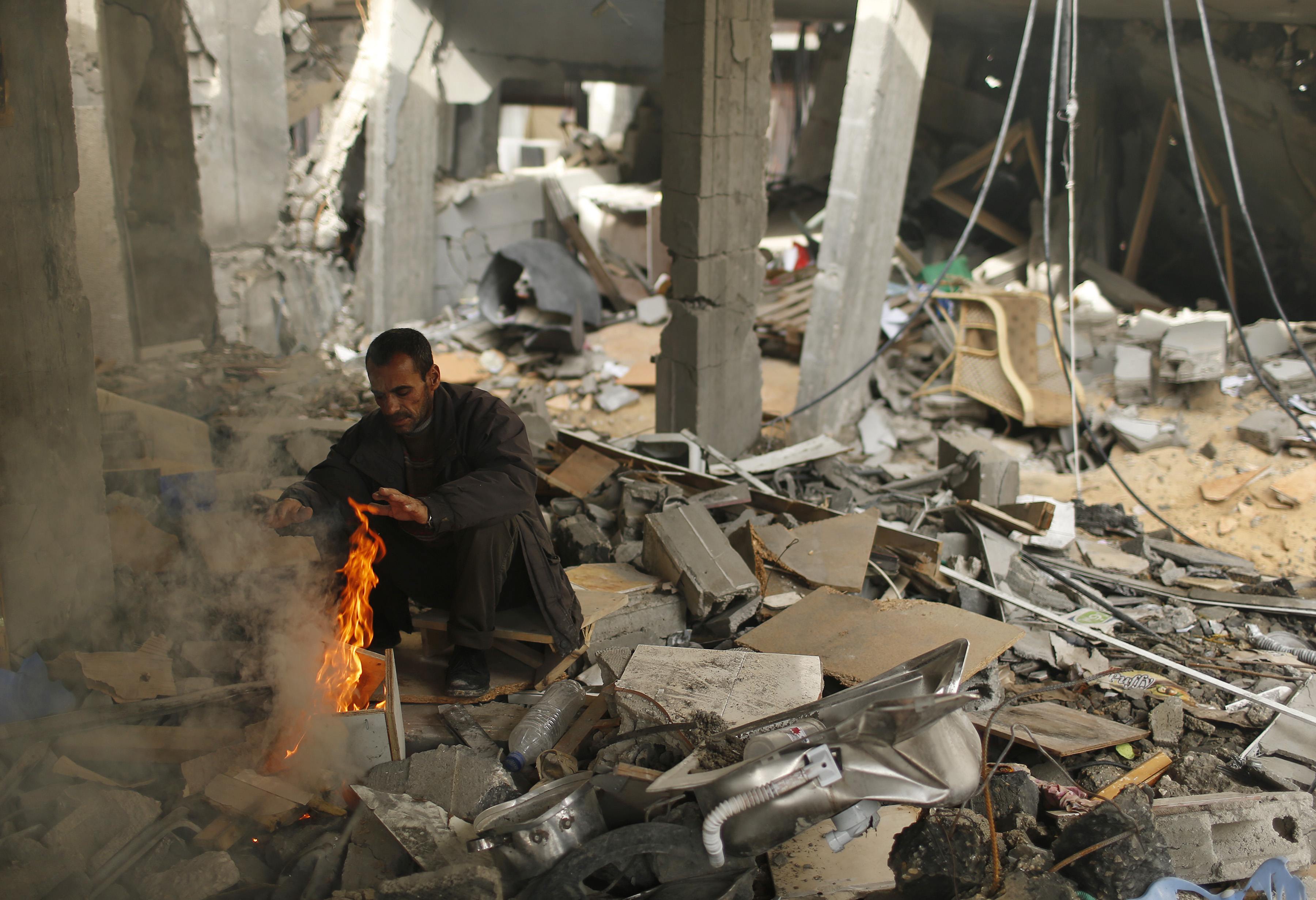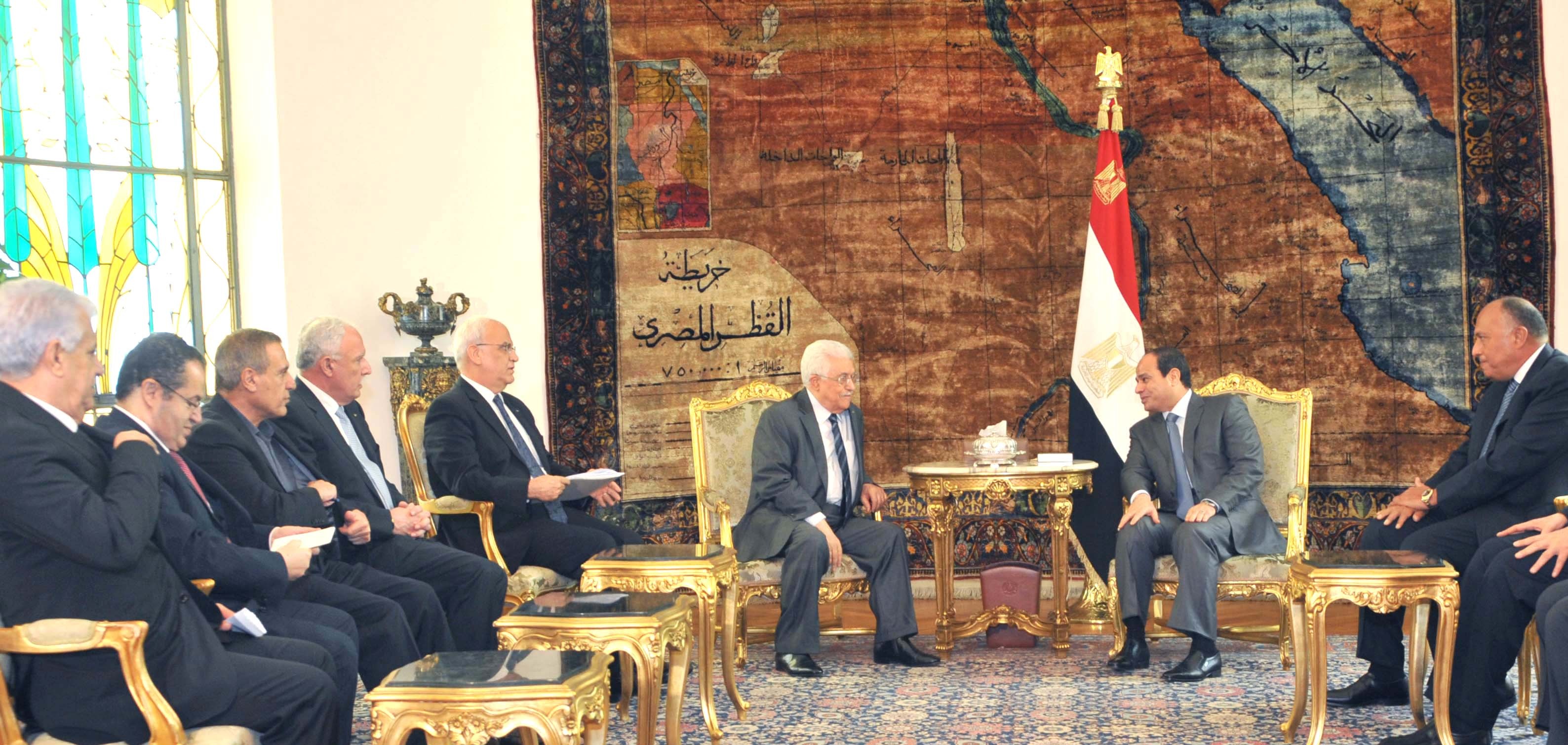Latest NEWS
- Aswat Masriya, the last word
- Roundup of Egypt's press headlines on March 15, 2017
- Roundup of Egypt's press headlines on March 14, 2017
- Former Egyptian President Hosni Mubarak to be released: lawyer
- Roundup of Egypt's press headlines on March 13, 2017
- Egypt's capital set to grow by half a million in 2017
- Egypt's wheat reserves to double with start of harvest -supply min
- Roundup of Egypt's press headlines on March 12, 2017
Egypt supports 'Palestinian state' along pre-1967 borders - Sisi
Egyptian President Abdel Fattah al-Sisi meets with his Palestinian counterpart Mahmoud Abbas in Cairo, May 9. 2016. Presidency handout
CAIRO, May 10 (Aswat Masriya) – Egypt continues to support the “establishment of a Palestinian state,” President Abdel Fattah al-Sisi said Monday during a meeting with his Palestinian counterpart Mahmoud Abbas, Egypt’s Presidential Spokesman Alaa Youssef said in a statement.
Sisi told Abbas, who arrived in Cairo on Sunday for a two-day visit, that the Palestinian cause is a “priority” for Egyptian foreign policy, Youssef added.
Earlier in May, Egypt mediated a ceasefire between Israel and Palestinians after a few days of cross-border violence between the Palestinian movement Hamas, which controls the Gaza strip, and Israel.
Gaza borders Egypt and Israel.
Sisi told Abbas on Monday that Egypt supports “a Palestinian state, along the [pre-] June 4, 1967 borders, with East Jerusalem as its capital,” the presidential spokesman added in his statement.
Abbas called for holding an international conference and adopting a “multilateral mechanism” to end the occupation and establish a Palestinian state within a specific time frame, Youssef added.
The last round of Israeli-Palestinian peace talks started in 2013, through an American-led initiative, but talks collapsed in April 2014 upon reaching a pre-planned deadline.
Egypt has often been involved in talks between Israel and Palestine as a mediator. When Sisi met with former French foreign minister, Laurent Fabius, in Cairo last year, he told him that "a comprehensive and permanent settlement would involve the creation of a Palestinian state with the 1967 borders, with East Jerusalem as its capital."
Egypt and Israel signed a peace treaty in 1979 after months of negotiations, ending a state of war and normalising ties. Egypt was the first Arab country to recognise Israel.
Enraged at Egypt's peace initiative with Israel, Arab states decided to move the seat of the Arab League from Cairo to Tunis from 1979 to 1990 in objection to Egypt's peace treaty.
Palestinians have long considered Israel settlement activity a major obstacle impeding the possibility of a two-state solution and an obliteration of hopes to resuming peace talks.
Since October, Israeli security forces have killed more than 184 Palestinians, allegedly accused of carrying out attacks that led to the death of 28 Israelis and two American citizens.

